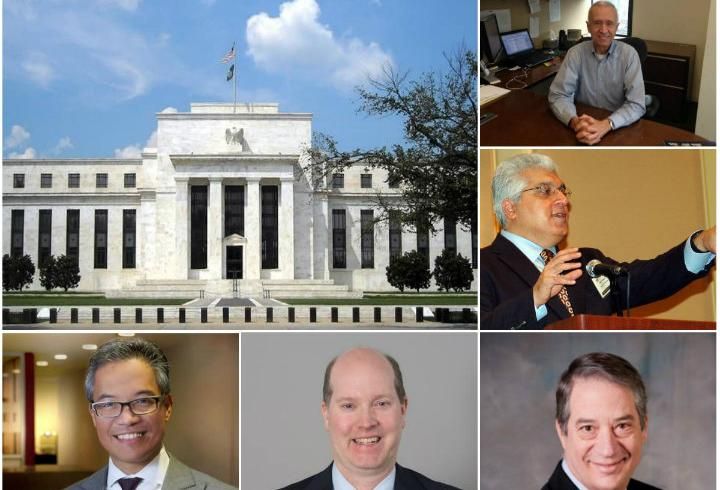
Photo:
Bisnow
The US Federal Reserve's decision to postpone the short-term rate hike this month was of little surprise to financial markets, and the economists Bisnow interviewed were not shocked either.
The lack of movement underscored central bankers' sense of urgency in providing economic stimulus, particularly with inflation rates hovering below 2% and unemployment remaining around 5%.
Here are the economists' response to the Fed's decision.
Jon Southard, Chief Economist of Commercial Real Estate Economics, NORC at the University of Chicago
Photo:
Courtesy of Jon Southard
"There is an increasing sense from economists that the effectiveness of ultra-low interest rates is deteriorating over time, but without any threat of general inflation there is little reason to risk raising rates either. At this point, the primary effect of these announcements comes from the reactions in the markets and signs today suggest that markets will continue to cheer the low lending rates, at least for now.
For real estate, though owners have become complacent, too aggressive of tightening continues to pose a risk to today’s valuation levels. That one of the Fed dissenters, Eric Rosengren, has given avoiding a bubble in commercial real estate as one of the reasons for increasing rates today should underscore the importance of the pace of the upcoming increases to commercial real estate prices."
Victor Calanog, Reis chief economist and SVP
"Not surprising, and it was certainly what the market expected. On the one hand, it's good that the Fed's decision didn't add fuel to the fire of uncertainty, given the recent spate of local bombings and the upcoming Presidential election. On the other hand, this still leaves the Fed with fewer levers to pull should we encounter an economic downturn in the short run. It's really a very delicate balancing act."
Jack Kern, Yardi economist
"The Federal Reserve has been deliberating this for most of the year and I am not surprised by the outcome. While the economy continues to grow in certain respects the Fed does not see sufficient reason to move forward with a rate increase at the moment.
It is extremely likely that we will see a rate increase before the end of the year. I do believe that the current status of commercial real estate remains strong and that the economy continues to grow in a satisfactory manner. There was little reason to be overly cautious at this time except that the Fed does not want to interfere with the election."
Rajeev Dhawan, Chaired Professor & Director of Economic Forecasting Center, Georgia State University
"Not surprised at all, not even for a nanosecond!
Why? The decision to hold, even in the face of three dissents, a very unusual occurrence, was because capex spending by the corporate sector is very weak at present. One culprit is the Presidential election rhetoric that heated up this time much earlier and much nastier than in the 2012 Presidential cycle.
Once the election is over, hopefully, businesses will get back on their normal routine of risk taking aka investment. That’s when the economy picks up in proper sense and will merit a rate hike as the trajectory of growth will be unquestionably up and not flattish as at this time. Thus, standing pat today was good for the economy. Why raise borrowing costs when demand for loanable funds is low? My forecast, since May of this year, has been for the next rate hike in March 2017, provided the previous assertion bears fruit.
Now, there is no such thing as a free lunch. Rate hikes signal strength and momentum in the economy (provided it’s not a policy mistake as some central banks have made in the not-too-recent past). That is always a signal to potential homebuyers that rates are rising so buy or build now. Thus, the residential real estate market will remain a bit subdued from this metric. As to CRE, a lack of investment today means less demand for office and industrial space tomorrow, calling into question valuations from a pure cash flow perspective."
Bob Back, NKGF Americas Director of Research
Photo:
Courtesy of Newmark Grubb Knight Frank
"The decision was a yawner. With futures markets showing an 80% probability of no change, it was hard to be surprised.
At this stage, the timing of the decision doesn’t hurt or help CRE. The chances are high that the Fed will move in December, and whether the increase comes this month or December won’t change the outlook for slow growth ahead. The slow rate of increases in interest rates helps CRE because it gives market participants plenty of time to absorb the increases."